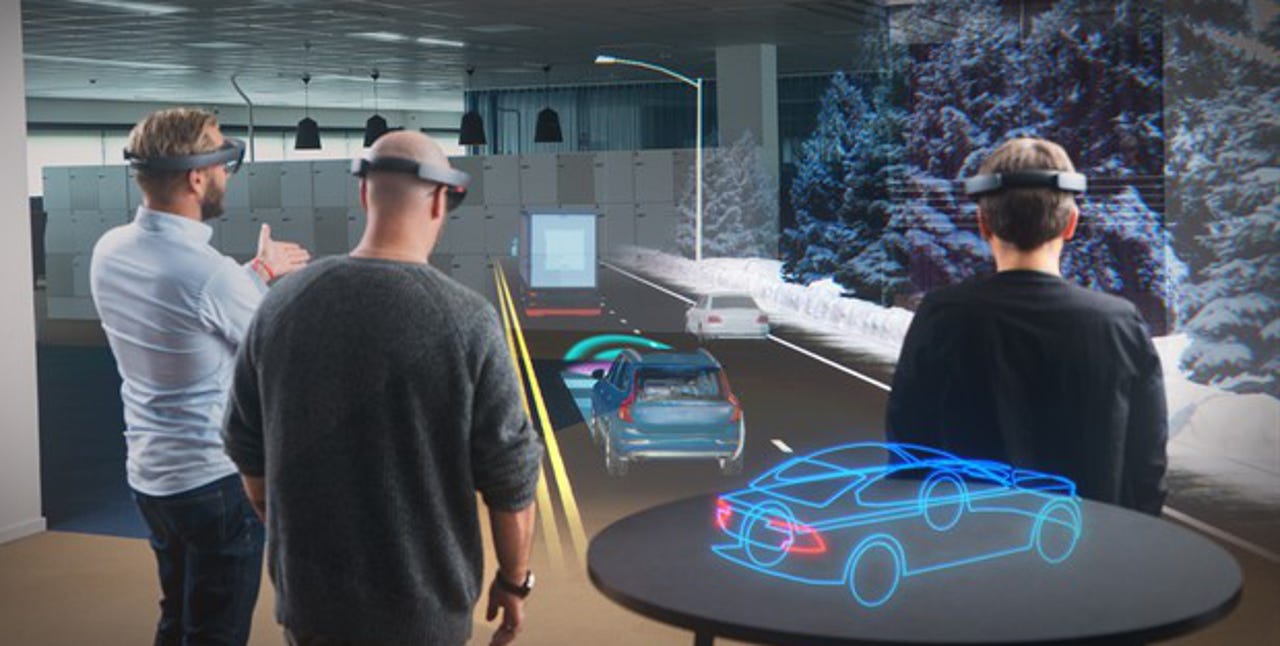Microsoft driverless cars? Volvo and Redmond start new pact with HoloLens project


Microsoft and Volvo Cars are teaming up to co-develop autonomous vehicle technology and bring the HoloLens augmented reality headset to car showrooms.
The Swedish car maker's move into augmented reality sales comes as the company unveiled its first autonomous vehicle, the Volvo Concept 26, to mark its push.
Describing how HoloLens will be employed, Volvo says it will be useful for showing customers different colour options and features in a more realistic manner than the conventional computer displays used today.
For now, the company says it is just experimenting with the technology. However, it is keen to use HoloLens with customers. One reason why Volvo likes HoloLens is that the technology can enable customers to experience key safety features, such as airbags, in a more realistic way without actually putting them through the trauma of a crash test dummy.
"We don't necessarily want you to experience it all but it's part of our proposition," Volvo Cars retail marketing director Nina Larsen said."We imagine a future where people will be able to better understand how our safety innovations can help avoid accidents, how our advanced powertrains are optimized to support people in different driving conditions, and how our new connected services can make life easier and save time," Volvo notes in a Q&A.
Volvo is also showing off its Concept 26 vehicle this week at the Los Angeles Motor Show. The vehicle features Volvo's new cradle seat design that allows the driver to shift position to suit different modes spanning 'drive', 'create', and 'relax'. It also features a tablet display in the central console and a 25-inch flat-screen monitor that flips up from the passenger side dash.
The vehicle follows a driverless car trial in Australia involving two Volvo XC90 vehicles that recently wrapped up after successfully demonstrating they could automatically hold a lane, and use cruise control.
So far Microsoft has steered clear of public autonomous driving projects such as Google's initiative. However, Microsoft and Volvo today said they are working on technology for the vehicles.
The HoloLens demonstration today was the "beginning of longer term cooperation between Volvo and Microsoft that will embrace a range of new technologies", including autonomous driving.
It's not clear yet how Microsoft and Volvo will develop technology, though a Volvo marketing exec told CNBC that the two firms are hoping to collaborate on machine-learning software, which could be helpful in coordinating various sensors used to detect road conditions.